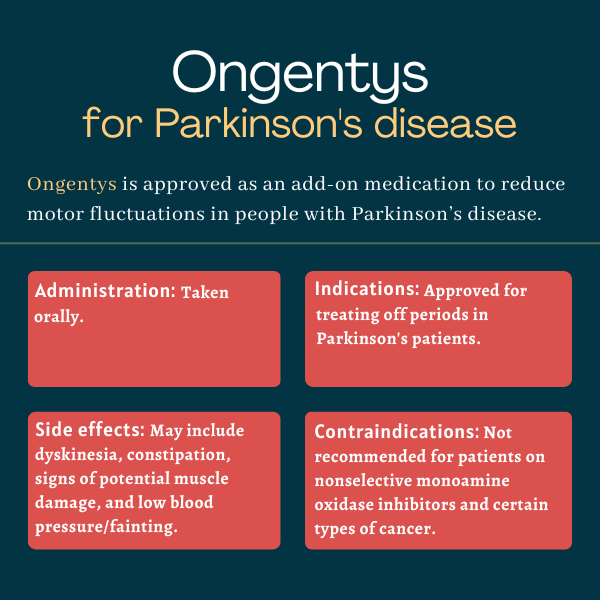FAQs about Ongentys
In the U.S., Ongentys was approved in April 2020 as an add-on treatment for off periods in Parkinson’s patients on levodopa/carbidopa.
Clinical trials of Ongentys have not included pregnant or breastfeeding patients, so it is unclear whether the therapy is safe in such conditions. Animal data has suggested, however, that the therapy may cause fetal harm and cross to breastmilk. Patients should talk with their doctor about any plans for being pregnant or breastfeeding while on Ongentys.
Given reports of people falling asleep during daily activities while on levodopa- and dopamine-related treatments, Ongenty’s U.S. label recommends that patients starting the therapy do not drive, operate machinery, or do other potentially dangerous activities until they know how it affects them.
As each person can respond differently to a medication, there is no standard timeline for when Ongentys starts to work. In the trials that supported the therapy’s approval, a significant reduction in daily off periods could be observed in Ongentys-treated patients within the first 3.5 months of treatment. In addition, greater levodopa dose reductions were reported in patients in the first two to three weeks of treatment. But patients are advised to talk with their healthcare team on how the therapy can help in their particular case.
Hair loss and weight gain were not reported as side effects of Ongentys in clinical trials, and patients should talk with their healthcare team if such events occur. However, weight loss is a common side effect of the therapy.
Related Articles

 Fact-checked by
Fact-checked by 








